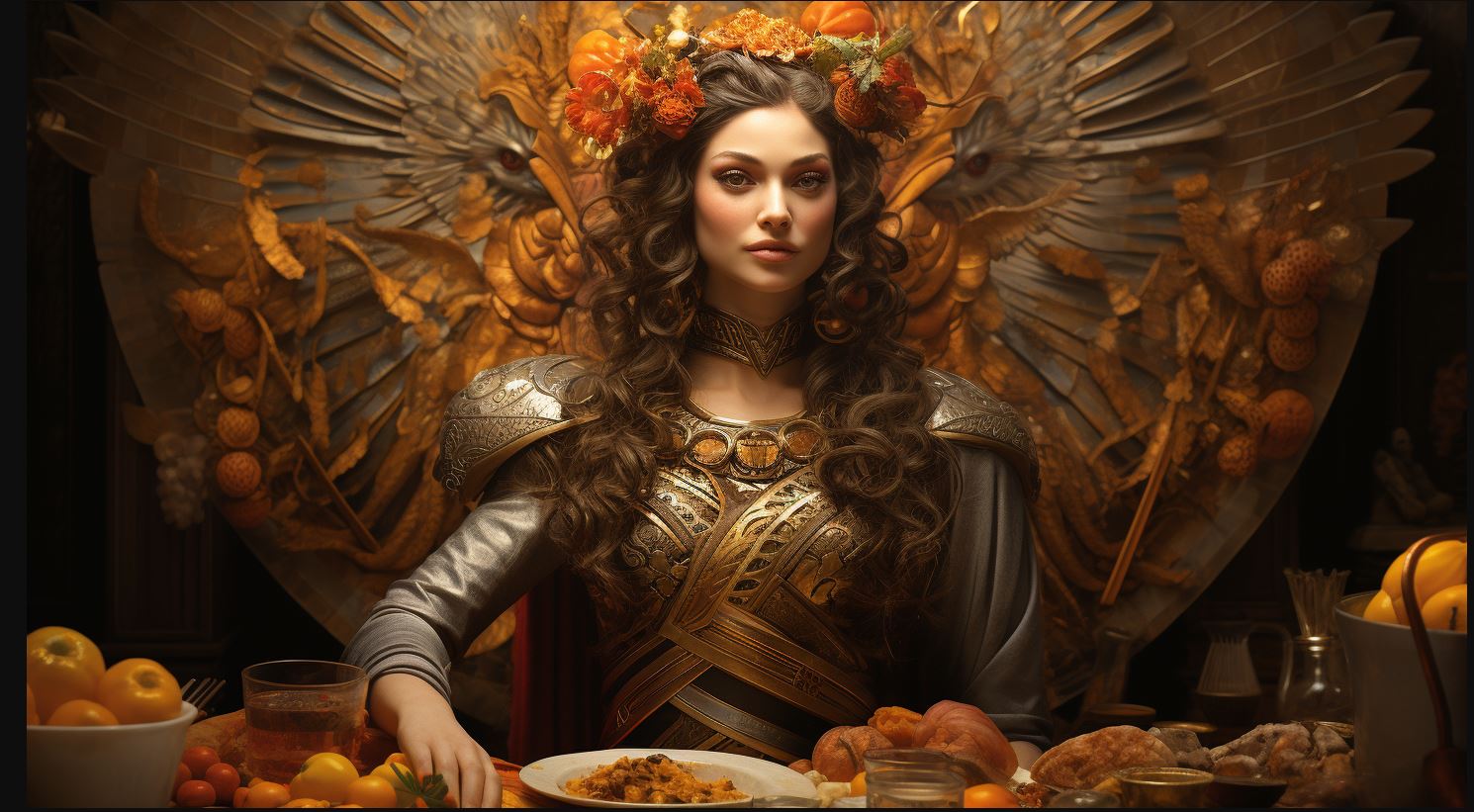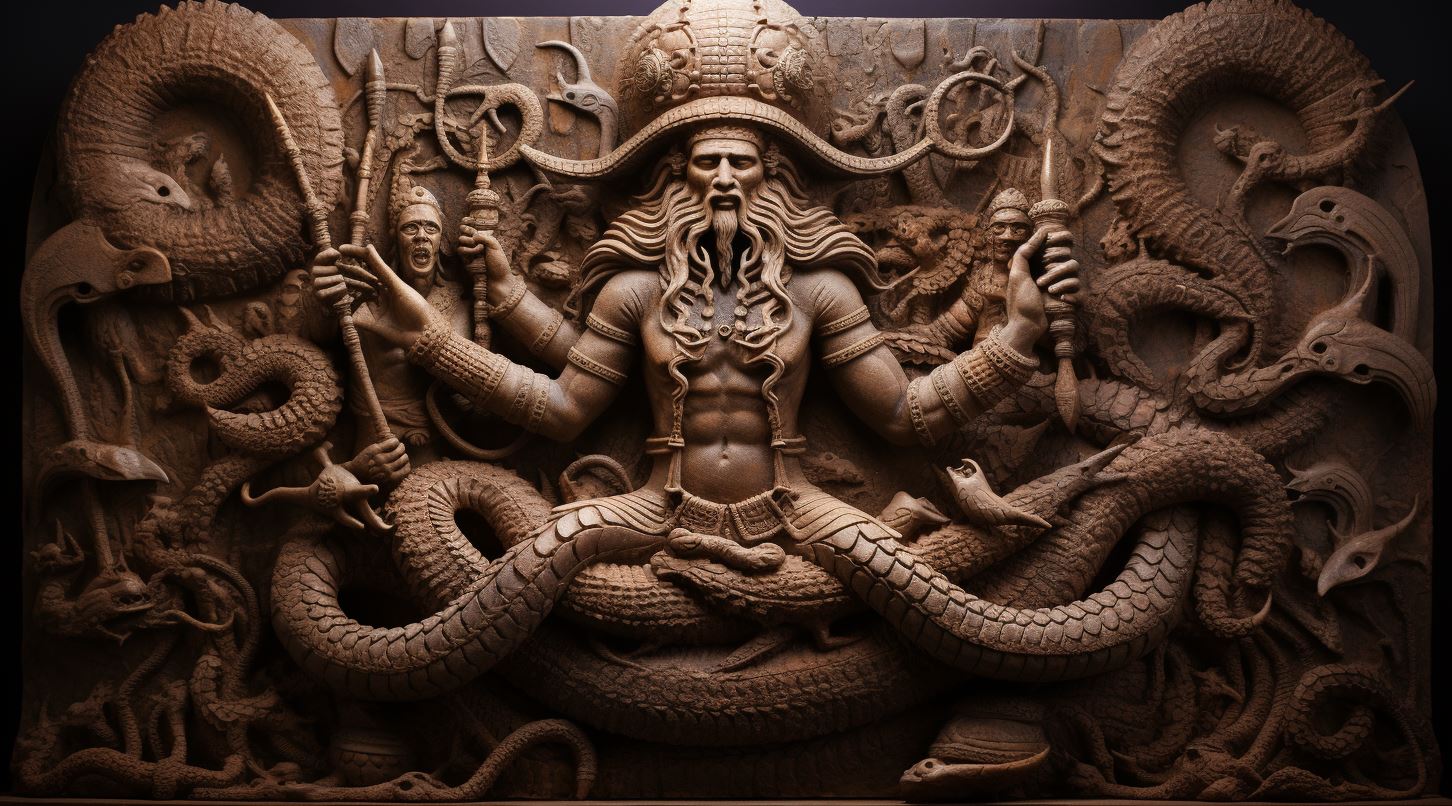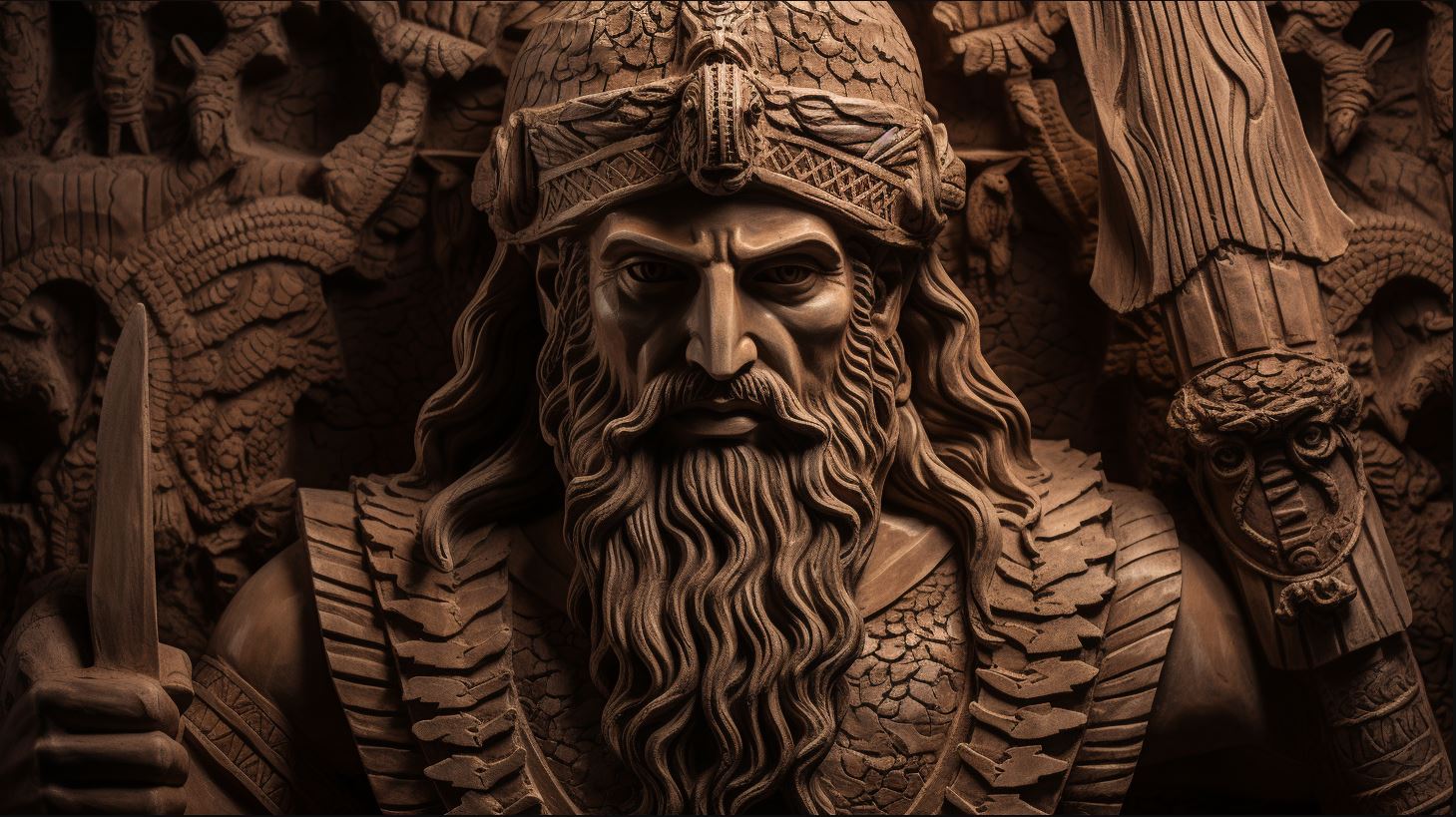Ashnan Goddess: Unveiling the Mysteries of the Mesopotamian Cereal Deity

Ashnan Goddess is a prominent figure in Mesopotamian mythology, specifically known as the deity of cereals. She was created alongside her brother Lahar to provide food for the Annunaki gods.
Ashnan’s role extends beyond food production, as she also promotes resolution of disputes and fosters friendship among neighbors. Additionally, Ashnan’s generosity is evident in her abundance of provisions, alongside her fondness for wine and sweet beer.
Explore the intriguing tales surrounding Ashnan Goddess and delve into her significance in ancient Mesopotamian culture.
Overview of Ashnan Goddess
The Ashnan Goddess, also known as Ezina or Ezina-Kusu, holds a significant place in Mesopotamian mythology as the deity of cereals. She and her brother Lahar were created by the gods with the primary purpose of providing food for the Annunaki.
However, due to excessive indulgence and quarreling among the gods, Ashnan’s production became unusable.
As a consequence, Enlil intervened by creating humanity as the new recipients of Ashnan’s services. Despite her divine origins, Ashnan’s role expanded beyond simply sustaining the gods.
She emerged as a symbol of friendship and conflict resolution among neighbors, using her influence to promote harmony within communities.
While Lahar tended to his flocks, Ashnan dedicated herself to the cultivation of crops.
Her fields were carefully tended by diligent laborers who worked to ensure a bountiful harvest. However, Ashnan’s agricultural pursuits did not come without challenges. She faced opposition from Lahar’s shepherds, who sought to graze their flocks on her land.
Yet, Ashnan persisted in her efforts, warning Lahar of the potential dangers that awaited his animals in her fields.
It is worth noting that Ashnan possessed a fondness for wine and sweet beer, indulging in these pleasures alongside her brother Lahar. In addition to her role as the goddess of cereals, Ashnan’s association with these beverages added to her mythical charm and vitality.
The Role of Ashnan in Mesopotamian Mythology
The realm of Mesopotamian mythology is replete with intriguing deities, and Ashnan holds a significant role in this ancient pantheon. Let us delve deeper into the role she played in the mythological narratives of the region.
Creation of Ashnan and Her Brother Lahar
Ashnan’s origins lie in the divine realm, where the gods, recognizing the importance of sustenance, shaped her and her brother Lahar to fuel the appetites of the Annunaki. Created with a specific purpose, their existence served to nourish and satiate the divine beings.
Relationship Between Ashnan and Lahar
Ashnan’s relationship with her brother Lahar reveals a unique dynamic within the mythology. While their roles veer towards different aspects of food production, they coexist in a harmonious union, each contributing their essential skills and services.
This partnership showcases the interdependence of various celestial forces in the divine order.
Ashnan’s Role in Providing Food to the Annunaki
The responsibility bestowed upon Ashnan encompassed overseeing the production of grains and cereals, which formed the core sustenance for the Annunaki gods. With meticulous care, she nurtured the fertile fields, ensuring an abundant harvest that would satiate the heavens.
Ashnan’s efforts played a vital role in sustaining the divine beings, fulfilling their needs and desires.
In the intricate tapestry of Mesopotamian mythology, Ashnan takes center stage as the facilitator of nourishment and the provider of essential grains to the Annunaki gods.
Her symbiotic relationship with Lahar and her pivotal role in the divine food chain showcases her significance in the grand mythological narrative of ancient Mesopotamia.
Ashnan’s Contribution to Resolving Disputes
Ashnan, the revered goddess of cereals, not only plays a vital role in providing food to the Annunaki, but also acts as a peacemaker and mediator in resolving disputes among neighbors.
Her divine presence brings about harmony and encourages the resolution of conflicts.
With her gentle yet persuasive nature, Ashnan fosters friendship and encourages peaceful coexistence. She recognizes the value of maintaining good relations between neighbors and understands that disputes can disrupt the overall well-being of a community.
Through her wisdom and guidance, Ashnan ensures that conflicts are peacefully resolved, fostering an environment of understanding and cooperation.
Ashnan’s divine powers extend beyond just the physical nourishment of the Annunaki.
She facilitates forgiveness, encouraging individuals to let go of their grievances and embrace reconciliation. Her influence permeates through communities, fostering an atmosphere of forgiveness, compromise, and unity.
It is through Ashnan’s intervention that neighbors come together to address their grievances and find common ground.
Her presence serves as a reminder that cooperation and understanding lead to prosperity and overall well-being. By emphasizing the importance of resolving disputes, Ashnan ensures the continued harmonious existence of communities, reinforcing the social fabric that holds them together.
The role of Ashnan as a mediator demonstrates her significance beyond the realm of food provision. She embodies the values of justice, fairness, and peaceful resolution, leaving a lasting impact on ancient Mesopotamian society.
As communities strive to maintain peaceful relationships, they invoke the spirit of Ashnan, drawing inspiration from her wisdom and guidance.
Ashnan’s Generosity in Providing Abundance
Ashnan Goddess, revered as the deity of cereals in Mesopotamian mythology, is widely known for her remarkable generosity in providing abundance. Through her divine power, she ensures that the granaries and homes of both the wealthy and the poor are filled with bountiful riches.
As the overseer of food production, Ashnan purifies the horno, a crucial element in the process. With meticulous care, she places bueyes and ovejas, oxen and sheep, into the horno, allowing them to contribute to the creation of sustenance for the people.
It is through her divine intervention that the crops thrive, yielding an abundant harvest.
In her benevolent nature, Ashnan fills the granaries not only with an abundance of grain but also ensures that the homes of the needy are overflowing with the wealth necessary for sustenance.
Her compassion extends to all, and none go hungry under her watchful gaze.
Moreover, Ashnan’s generosity is not limited to tangible resources alone. She bestows upon her followers the sweet taste of wine and cerveza dulce, her preferred beverages.
This act of indulgence symbolizes her desire for others to experience joy and pleasure, adding to the richness of their lives.
Ashnan’s dedication to generosity and provision extends beyond the realm of sustenance.
She embodies the ideal of fulfilling the needs of others, ensuring that both material requirements and personal happiness are attended to. Her contributions have a significant impact on the well-being and prosperity of the community she serves.
In conclusion, Ashnan Goddess, the deity of cereals, is renowned for her remarkable generosity in providing abundance. Through her divine powers, she ensures that the granaries are filled with bountiful riches, and the homes of the needy are overflowing with wealth.
Her benevolence extends further to indulging her followers with the sweet taste of wine and cerveza dulce. Ashnan’s dedication to generosity and provision embodies the true essence of her divine nature, making her an integral figure in Mesopotamian mythology and a beacon of hope for all.
The Debate Between Sheep and Grain
The ancient Mesopotamian myth of Ashnan Goddess delves into the spirited debate between sheep and grain, two essential elements of sustenance and prosperity. This debate revolves around the roles of Ashnan’s brother, Lahar, who is associated with livestock, and Ashnan herself, the goddess of cereals.
Ashnan’s Perspective on the Debate
Ashnan firmly asserts her contribution to cultivating friendship and resolving disputes between neighbors. She emphasizes that her unique food production differs from that of her brother Lahar. While she toils in the fields, her laborer discourages Lahar’s shepherd from invading her productive domain.
Ashnan dedicates herself to ensuring the safety of Lahar’s animals, warning him about the perils they may encounter in the open field.
The Role of Ninkasi
Within Ashnan’s realm, the careful blending of beer and porridge occurs under the watchful eye of Ninkasi. This meticulous process takes place in the oven, creating a fine concoction. Simultaneously, Ashnan sends her goats and rams to partake in lavish banquets, a testament to her abundant provision and generosity.
Ashnan’s Warning to Lahar
Ashnan cautions Lahar about the potential dangers that await his grazing livestock in her cultivated fields. Despite their differences, Ashnan’s concern for her brother’s animals reveals a bond between them.
She cherishes her role in providing nourishment to the gods but recognizes the need for balance and cooperation between the domains of cereals and livestock.
As the debate unfolds, Ashnan’s perspective highlights her commitment to conflict resolution, nurturing friendships, and safeguarding the prosperity of both grain and livestock.
Her warnings to Lahar serve as a reminder of the interconnectedness of their roles in sustaining the divine and mortal realms.
Ashnan’s Association with Wine and Sweet Beer
Within the ancient Mesopotamian mythology, Ashnan Goddess not only holds the responsibility for providing sustenance and resolving conflicts, but she also has a strong association with wine and sweet beer. These indulgences serve as a testament to the divine pleasures enjoyed by Ashnan and her brother Lahar. Wine and sweet beer were considered exquisite beverages, associated with celebrations and merriment.
The Mesopotamians believed that Ashnan and Lahar took great delight in partaking of wine and sweet beer, reveling in their tempting flavors. They would savor these intoxicating elixirs, allowing the richness to fill their divine beings.
This connection to wine and sweet beer, beyond their practical roles in food production, emphasizes the enjoyment and luxurious aspects that Ashnan and Lahar possessed.
Indeed, the mention of wine and sweet beer in relation to Ashnan demonstrates the divine abundance she represents.
She ensured not only the provision of essential sustenance but also the enjoyment of exquisite pleasures. It is a testament to the multifaceted nature of Ashnan’s role and her embodiment of generosity and indulgence.
This association with wine and sweet beer portrays Ashnan as a figure who not only nourished the gods and humanity but also celebrated the joys of life itself. It suggests a harmonious balance between labor and leisure, work and celebration, reinforcing the cultural significance placed upon these libations in the Mesopotamian society.
Overall, Ashnan’s association with wine and sweet beer offers a glimpse into the divine delights and lavishness that she and her brother Lahar indulged in. It highlights the multifaceted nature of her role as the goddess of cereals and showcases the rich tapestry of Mesopotamian mythology.




















